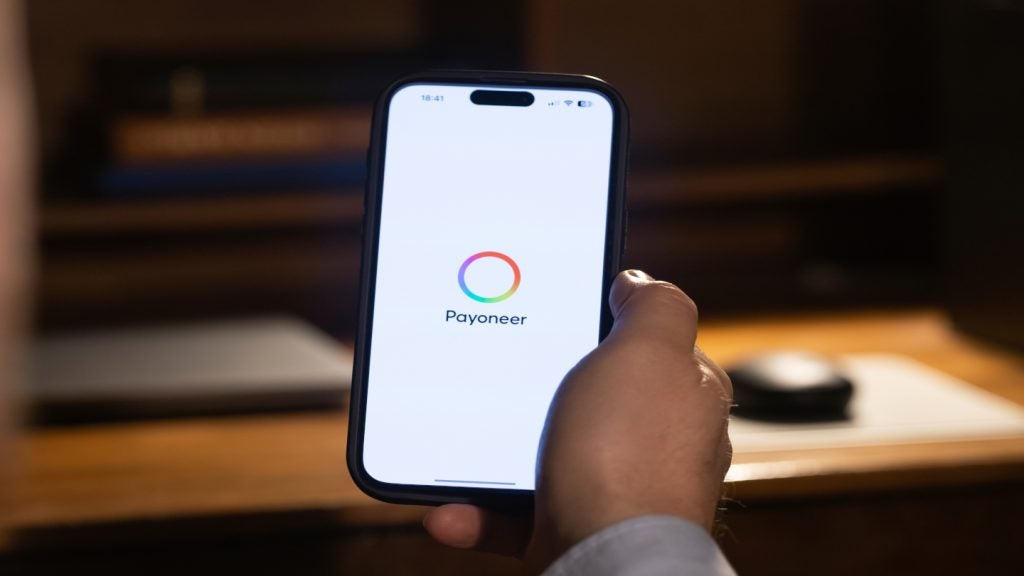The UK is taking the lead with e-commerce but the rush towards the web is not without risks. Shortfalls in regulation compliance and a mishandling of the payment page are the main areas to tackle. Sara Perria reports.
E-commerce statistics position the UK on the top spot for innovation. More and more businesses are trying to grab the opportunities offered by new trade channels such as mobile-commerce, showing a high level of flexibility and speed compared to other European countries.
However, this bright side of the story is accompanied by a major downside: the rush to beat recession and abandon the high street – or at least to support its bricks and mortar outlets with the web – has led UK companies to forget the basics of business.
This is the conclusion drawn by payment service provider Sage Pay in its E-Business benchmark report 2013.
The company surveyed almost 1,500 UK online businesses, highlighting two main trends: investment in social and mobile commerce is a winning choice in terms of returns on investment; but in the short term, an underestimation of the importance of payment channel choice, could compromise future growth opportunities.
At the cutting edge
More than seven businesses out of ten said they were optimising their websites for mobile commerce and 22% of respondents already offer a mobile app, the Sage Pay report found.
Almost half of large businesses – defined as those conducting over 5,000 transactions per quarter – said they plan to develop mobile apps in the next 12 months. A quarter of these ‘big’ players said they were seeing up to 19% of sales coming from mobile devices.
Sage Pay chief executive Simon Black says: "As the UK e-commerce market continues to mature, the margins between success and failure become even finer. This pressure to stay at the cutting edge is driving UK e-commerce to new levels of sophistication."
With respect to this ‘upgrade’, Black stresses that taking advantage of the mobile opportunity is critical to stimulating economic growth in the UK.
"With almost half of the businesses surveyed planning to introduce mobile apps in the coming months, Britain is poised for a bright future at the leading edge of mobile innovation," he adds.
Paying the price for innovation
Social networks have an important role to play in underpinning the transition to e-commerce. However, only 15% of respondents said they have a Facebook store with an embedded payment page and only 36% of them plan to set one up within the year.
Significantly, almost a quarter of businesses do not have a Facebook page at all, as they do not think it would generate extra-sales on top of the website.
This finding opens the chapter of what Sage Pay identifies as issues to be tackled in order to optimise sales via the web.
The report divides businesses interviewed into two categories: successful businesses -those who manage to convert more than 6% of their traffic into sales -; and unsuccessful – those below the 6% threshold.
The main finding, with respect to small businesses, is the direct link between the implementation of a social network page with an integrated payment option and a higher conversion rate, namely more purchases. Social networks do drive e-commerce, Sage Pay concludes.
The report states that Pay-per-click (PPC) has been the default activity for small e-businesses and this year has represented again the highest proportion of spend.
However, the most successful e-businesses turned out to be the ones investing less on PPC and more on Facebook, Twitter or other social channels.
Online merchants spend between 1% and 9% of revenue on marketing. Successful businesses spend a quarter of this budget on social networks, including the cost of hiring extra resources to manage them. Unsuccessful businesses spend an average 6% less.
Black says: "Small and medium businesses should focus more than what they are doing now on social networks, as it has proved to be a winning choice."
The payment experience drives e-commerce
Not including a payment option in the social network page equals a missed opportunity. This finding leads directly to the core of the issue: merchants highly underestimate the importance of the payment page and of a seamless customer payment experience.
Statistics offered in the survey are very clear: the payment page is the most common dropout place for almost 30% of small e-businesses transactions.
The story does not end here: almost 20% of less successful e-businesses offer only a restricted payment choice, without any additional payment option outside of credit and debit card.
The report states: "Given the difficulty in converting visitors to customers, this seems like a critical omission – imagine finding the site, selecting a product and getting all the way through to the payment page only to find the site does not offer your preferred payment type.
"Of course, most sites do offer a good range of payments options, with PayPal being a popular additional choice. And we would say that offering this variety is key to ensuring you are not turning away customers," the report highlights.
It is no surprise then that seven out of ten of successful small companies allow customers to complete transactions in three pages or less. In the case of large successful businesses, the percentage drops down to 40%: a sign that small businesses have to make more effort to convert traffic into sales.
A "critical" difference between small and large businesses is also in the answer to whether a company should customise a payment page or not.
The most relevant finding is that customisation is having a detrimental effect on smaller e-businesses, while for the larger ones "it is a clear marker of success".
The customisation of the payment page is a temptation for most businesses, driven by the idea that this automatically gives more visibility to the brand and generates loyalty. The statistics offered present a different picture: more than half of small companies – 54% – decided to customise their payment pages but this did not make them more successful. More successful e-businesses use their payment processor’s standard templates and co-brand them (44% versus 38% of large "successful" businesses).
Sage Page view is that the different result may reflect the lower recognisability of small e-business brands. In the case of small businesses, paradoxically, the most trusted brand is the payment brand.
"On the contrary, large e-businesses have built their brands and are expected to carry those brands all the way through the payment pages, providing a slick and seamless process".
Question marks on security compliance
The data gathered by Sage Pay offers a worrying insight into the low degree of security-awareness within UK e-businesses.
Security doesn’t seem to be high on the agenda of either small or large companies, despite a high degree of awareness among consumers.
The report shows that 18% of large businesses fail to comply with the Payment Card Industry Data Security Standard (PCI DSS) and almost a quarter of them think it is unnecessary. Among small businesses, over a third thinks it is unnecessary.
When it comes to small businesses, the situation worsens, as 18% of them don’t even know if they are compliant or not.
PCI DSS is a set of best practices aimed at protecting data with firewalls such as robust passwords to encrypt transmission of cardholders’ data, stay up to date on virus protection and control who gets to see what. Typically, as in the case of outsourcing to third-party payment services companies, businesses will have to complete a self-assessment form. Large businesses may be subject to more stringent requirements.
Black says that the fact that businesses are not aware of whether they are PCI compliant is "shocking" and clearly underestimated. A breach in data security does not represent a single episode of wrongdoing; it could damage a business’s reputation irredeemably.
"Businesses simply cannot afford to ignore data protection. This means that consumer data is at risk and businesses face fines and reputational damage if there is a data breach. Fraud also remains a constant concern for consumers as well as businesses and should be high, if not highest on their agenda to address in 2013," the chief executive says.
Despite this low compliance, eight out of ten do think that these minimum standards are important and almost half of respondents think it forces companies to take data compliance more seriously.
The fraud chapter is equally significant: almost 40% of small businesses and 70% of large ones say they have lost money to fraud, according to the report.
Sage Pay, which says it processes secure payments for 40,000 customers each year, also found that almost one-fifth of participants to the survey have lost more than £5,000 ($7,859).
More than half of respondents spend over £2,500 on fraud prevention. Among the more successful businesses the percentage rises to 66%.
The conclusions of the report are straightforward.
UK firms are behind with PCI DSS compliance and need to catch up quickly, as fines and a mishandling of customers’ data could compromise the future of the business.
Secondly, small and large businesses need to adopt different strategies with respect to payments. The payments experience is central when purchasing online and the optimisation of this page should be a priority. Small businesses should recognise that, unless the brand is strong enough and has many repeated purchases, un-customised payment pages deliver higher conversions.








